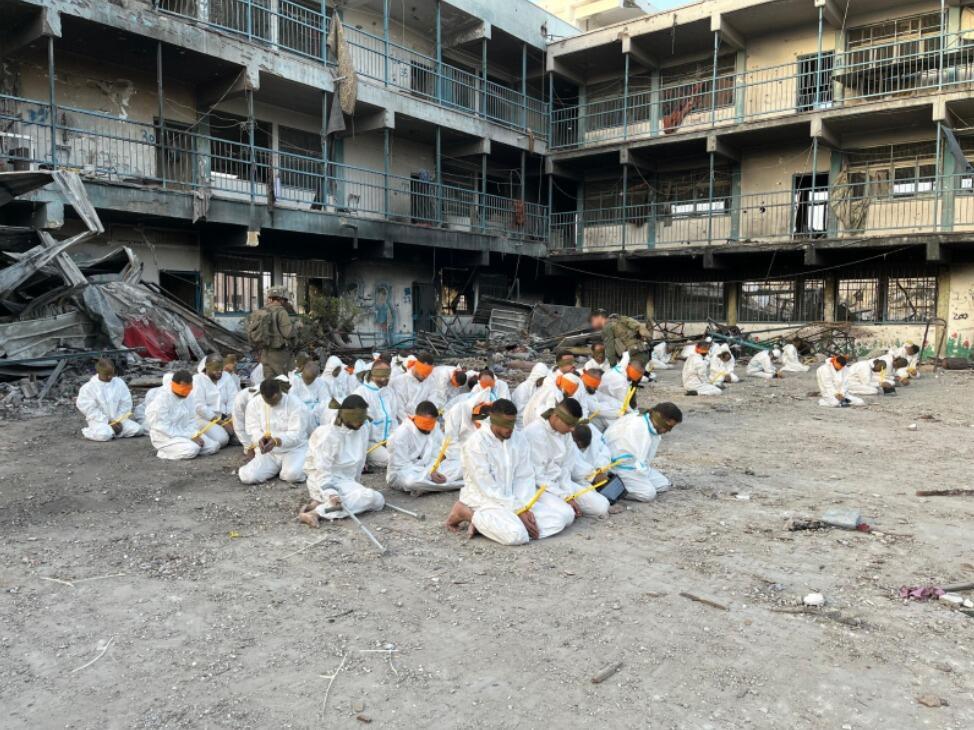Getting your Trinity Audio player ready...
Dr. Danny Epstein, a senior physician in Rambam Health Care Campus's intensive care unit, and Dr. Daniel King, head of Bnai Zion Medical Center's intensive care department in Haifa, have authored a response in the prestigious medical journal The Lancet countering accusations from a previous piece alleging that Israel deliberately targeted hospitals in Gaza during over the course of the war.
In their article, they criticized Hamas for exploiting Gaza’s hospitals as shields for terrorists and cited evidence of involvement by certain health organization personnel in serious acts, including hostage-taking and harboring terrorists.
The Lancet's allegations
The original anti-Israel article, published in the wake of the October 7 attacks, accused Israel of deliberately targeting Gaza’s healthcare system, particularly hospitals, as part of its military operations. The article claimed these strikes disrupted the functioning of medical teams, undermined access to essential healthcare services, and forced medical staff to operate in unbearable conditions, such as severe shortages of resources, personnel, and functioning facilities.
The article also described an alleged Israeli raid on Nasser Hospital, saying this action led to the cessation of its operations and resulted in the loss of continuity in patient care. Additionally, it accused Israel of violating the rights of patients, medical staff, and healthcare facilities, all of which are protected under international humanitarian law and the Geneva Conventions.
Addressing their approach, Dr. King explained: “We carefully reviewed the claims made in The Lancet article and addressed them point by point. It wasn’t appropriate to rely on Israeli sources or local news. Instead, we used reports from internationally recognized organizations, such as the UN and BBC, which documented cases where Hamas used hospitals in Gaza as human shields.”
In their response, Dr. King and Dr. Epstein criticized the original article for presenting a one-sided, unbalanced view of the Israeli-Palestinian conflict. They argued that it equated Hamas's attacks on Israeli civilians with Israel's military operations in Gaza, while ignoring key context, such as Hamas’ use of hospitals as bases for military operations.
The doctors provided examples of Hamas’ violations, including the well-documented use of al-Shifa Hospital as a command center and the holding of hostages by medical personnel in Gaza-based facilities.
Dr. Epstein and Dr. King also emphasized the broader context of the attacks on Israel, which involved mass killings, kidnappings, and assaults on Israeli medical institutions. They argued The Lancet article ignored these realities, thereby portraying Israel as an unprovoked aggressor.
Reception and impact
Dr. Epstein highlighted that most of the feedback on their article has come from Israelis and has been overwhelmingly positive. However, he stressed that the article’s primary target audience is international readers, especially those unfamiliar with the complexities of the Israeli-Palestinian conflict or the circumstances of the recent war.
 Dr. Daniel KingPhoto: Dr. Olga Rotzky
Dr. Daniel KingPhoto: Dr. Olga Rotzky“This journal is read by influential physicians across the globe—key figures who shape significant processes in the international arena. It’s crucial that they are exposed to the Israeli perspective and, ultimately, to the truth,” Dr. Epstein explained. “This is not about taking sides; it’s about presenting facts as they are, without distortion or bias.”
<< Get the Ynetnews app on your smartphone: Google Play: https://bit.ly/4eJ37pE | Apple App Store: https://bit.ly/3ZL7iNv >>
Dr. King added that the article was also submitted to Jewish newspapers abroad in the hope of achieving wider exposure. “The more this letter is circulated internationally—whether through Jewish physicians or open-minded doctors willing to read and understand—the more effectively we can convey our message,” he said.
Challenges in gaining international support
Dr. King expressed frustration over the lack of support from colleagues abroad, Jewish or otherwise. “I must admit I’m deeply disappointed by the muted reactions I’ve received from friends overseas, even after the horrific events of October 7. This highlights how difficult it is for Israeli advocacy to penetrate the anti-Israel narrative,” he said.
 Dr. Danny EpsteinPhoto: Dr. Danny Epstein
Dr. Danny EpsteinPhoto: Dr. Danny EpsteinDespite these challenges, Dr. King underscored the importance of persistence. “We cannot give up. We must continue presenting the truth, pushing forward, and using every opportunity to communicate the message. Even small efforts can add up and have a meaningful impact. For example, my sister, Prof. Yael, a senior physician at Sourasky Medical Center, dedicates every international conference she attends to raising awareness about the hostages and calling for their release. This is a personal example of how we can persevere—repeating the message until it resonates.”
Through their article and advocacy, Dr. Epstein and Dr. King aim to challenge biased narratives and ensure that global audiences better understand the complexities of the conflict and the realities surrounding Israel’s actions.




